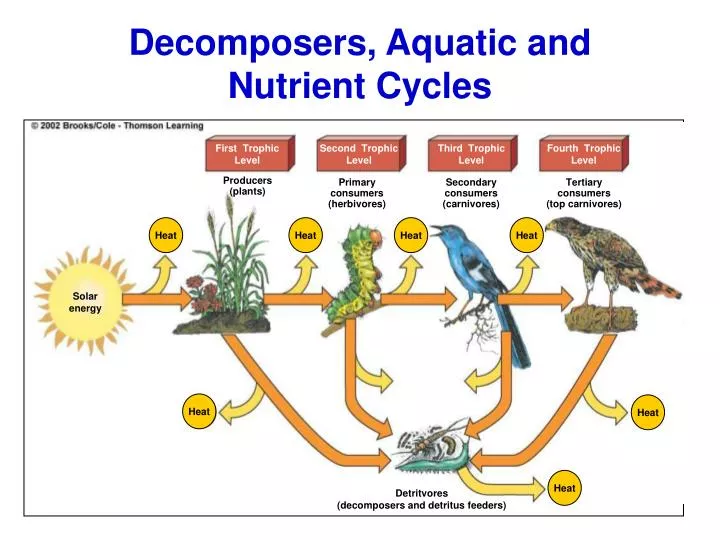Introduction to Trophic Levels in Ecosystems
Birds play a crucial role in various ecological processes within ecosystems, with their feeding habits and diets influencing the food chain and energy flow. When studying an ecosystem, organisms are classified into different ecological guilds based on their nutritional or dietary habits, namely producers, consumers, and decomposers. It is essential to delve into these classifications to thoroughly comprehend the specific contribution and role of birds in maintaining ecological balance.
![What are living things in an ecosystem? [2022] Guide](https://www.jotscroll.com/wp-content/uploads/2022/06/living-factors-in-the-environment.png)
Image: www.jotscroll.com
Types of Trophic Interactions
The ecological roles that each organism plays in an ecosystem, particularly in the context of nutrient and energy flow, are classified into these primary guilds:
Producers
- Begin the food chain by producing their own nourishment through photosynthesis, a process utilizing sunlight and inorganic molecules to generate organic matter.
- Examples: Plants, algae, some bacteria
Consumers
- Depend on other organisms to obtain their energy and nutrients through the consumption of other organisms.
- Further classified based on their position within the food chain:
- Primary consumers (herbivores): Feed on producers (plants).
- Secondary consumers (carnivores): Consume primary consumers.
- Tertiary consumers (top predators): The top level of consumers, feeding on other carnivores.

Image: www.slideserve.com
Decomposers
- Break down organic remains of plants and animals into simpler substances that can be reused by producers as nutrients, thus completing the nutrient cycle.
- Examples: Fungi, bacteria
Decomposers of the Avian World
While many associate birds solely with consumption, some species specialize in decomposing organic matter, exhibiting scavenging and predatory behavior such as vultures, condors, and carrion crows. These avian decomposers fulfill a crucial ecological function by consuming carrion, preventing disease, and assisting in the recycling of nutrients within their ecosystems.
Exploring the Omnivorous Nature of Birds
Birds showcase a diverse range of diets and feeding habits, and many are classified as omnivores, consuming both plant and animal matter. This nutritional versatility enables them to exploit various food sources and adapt to fluctuating environmental conditions as dietary generalists.
Consumer Classification of Birds
To further delve into the role of birds as consumers, we need to recognize their varying positions within the food chain. Insectivores, feeding primarily on insects, fall under the category of secondary consumers. Birds of prey, such as eagles, hawks, and owls, reign at the apex as top predators. Filter feeders, like flamingos, represent primary consumers, sifting out microorganisms and zooplankton from the water.
Role of Seeds in Bird Consumption
Birds also engage in seed predation, either tearing open plant parts or swallowing fruits whole, thus dispersing seeds over vast areas. This vital ecological service, known as seed dispersal, improves genetic diversity and habitat connectivity for plant populations.
FAQs on Birds’ Trophic Levels
Q: Why do insectivorous birds play a crucial role in pest control?
A: By consuming insects, these birds help limit insect populations, which can potentially damage crops and spread diseases.
Q: How do birds benefit from consuming berries and other fruits?
A: Berries and fruits provide birds with important nutrients, including carbohydrates for energy and vitamins for overall health.
Q: Why are scavengers and decomposer birds essential for ecosystems?
A: These birds aid in removing carcasses and other organic waste, facilitating nutrient recycling and discouraging disease proliferation.
Is A Bird A Producer Consumer Or Decomposer
Conclusion
In concluding our exploration of birds’ trophic roles, we can appreciate their diverse contributions to maintaining ecological balance, not only as consumers but also as decomposers in certain cases and as seed dispersers. By exploring the unique dietary habits and ecological roles of birds, we gain further insights into the intricate web of life in ecosystems.
Is the information provided sufficient for you to understand the topic better? Share your thoughts and any remaining questions in the comments section below.